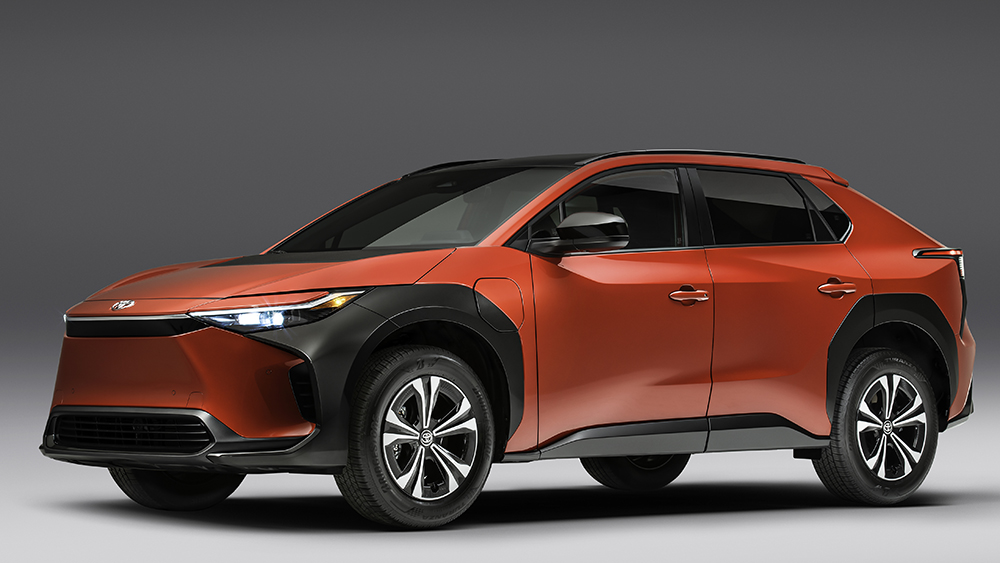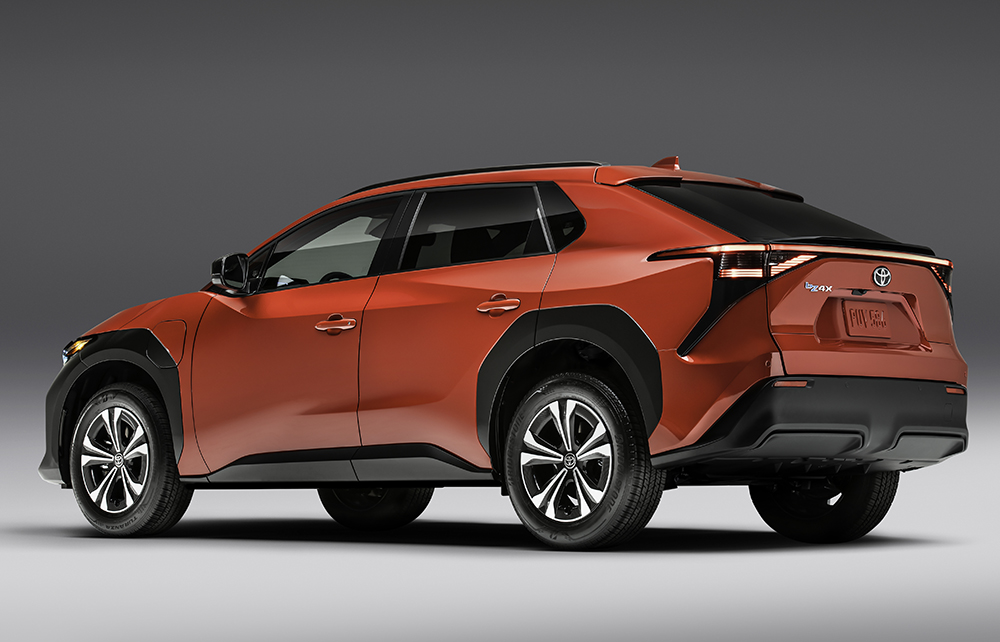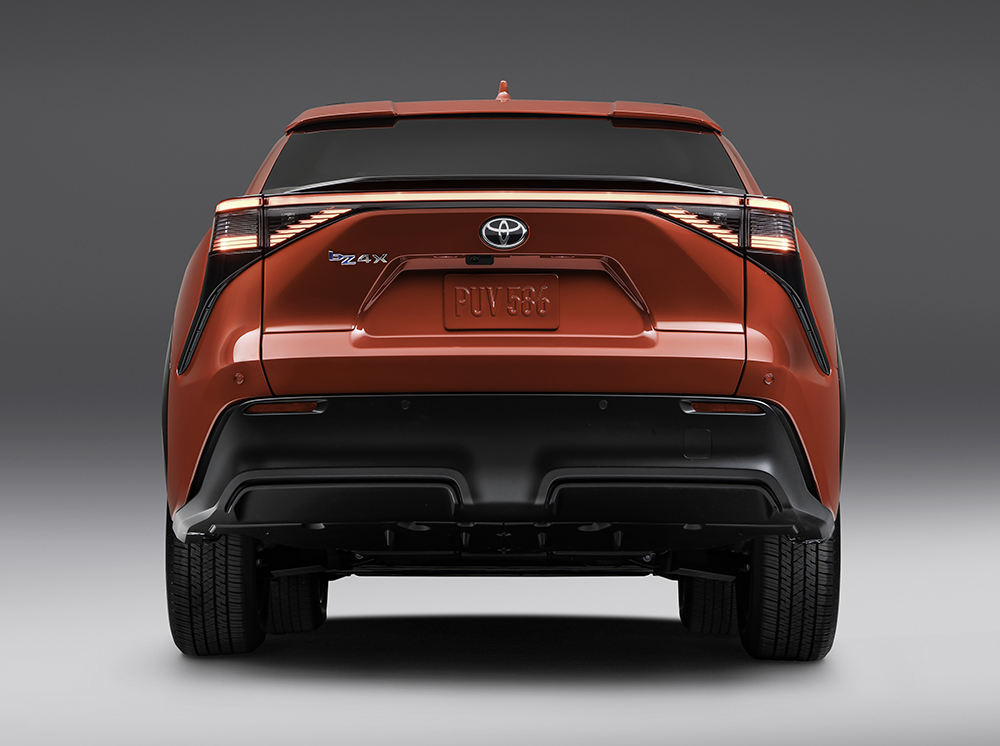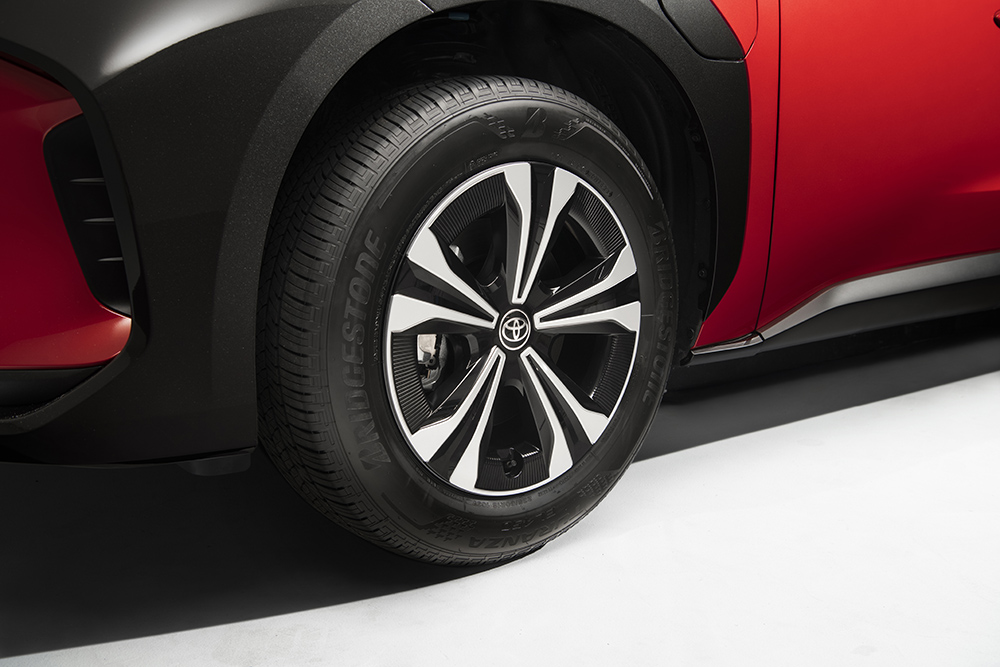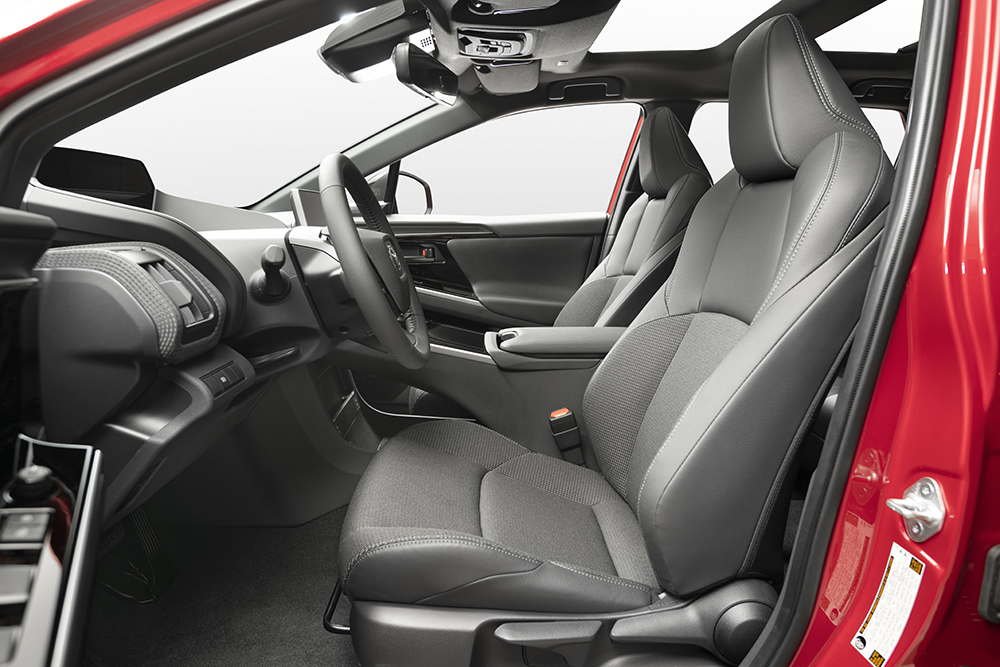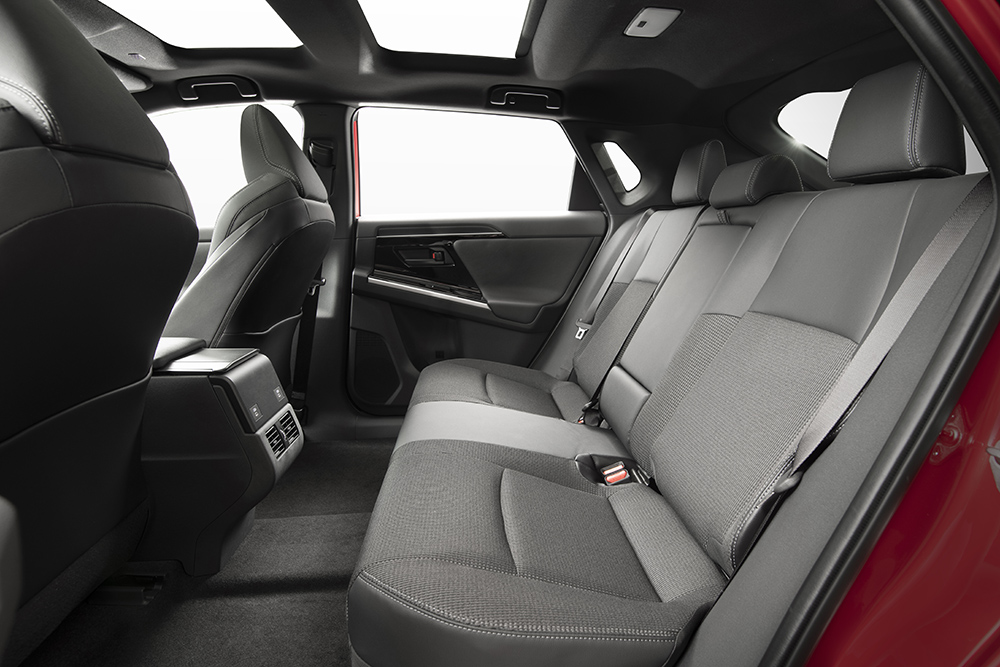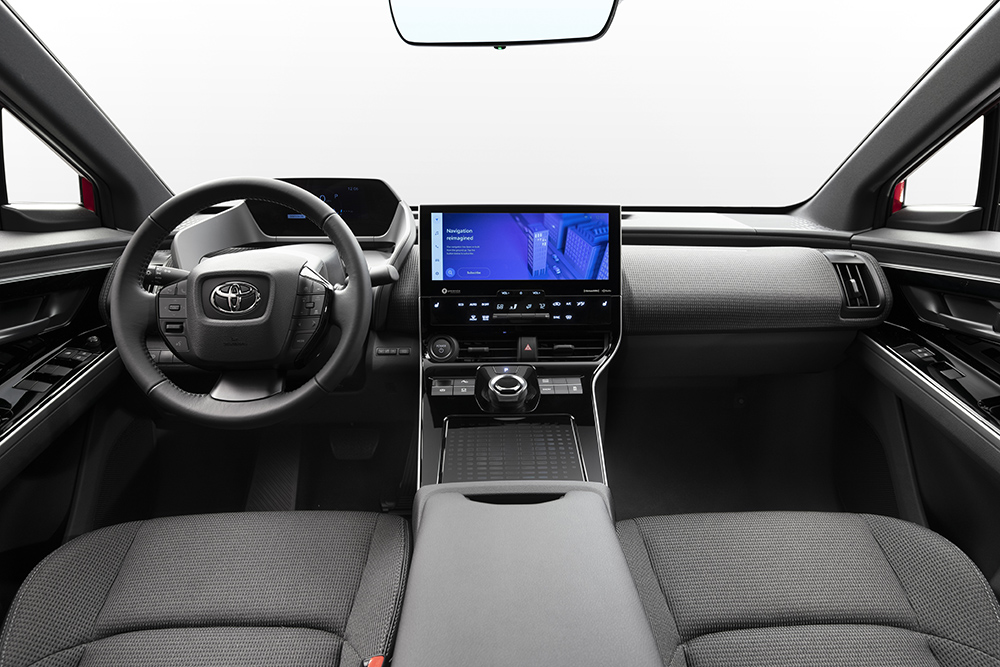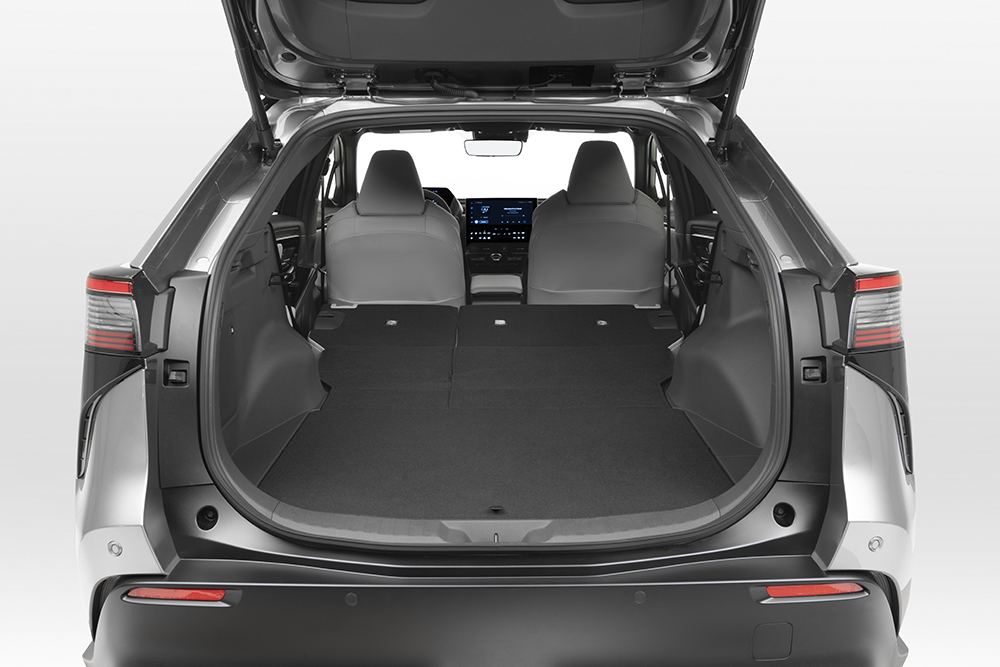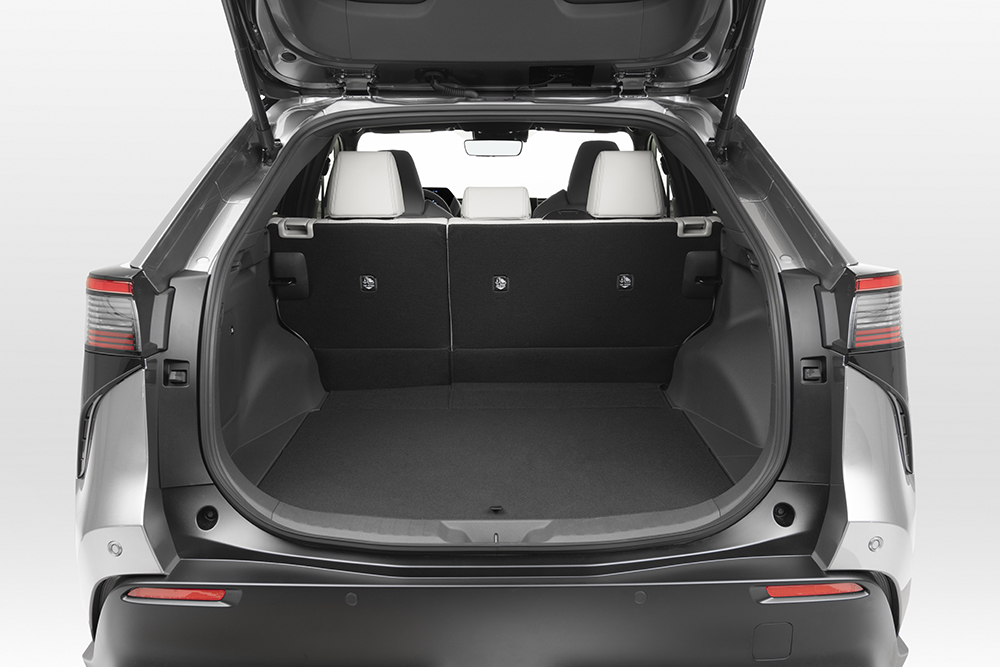Facing off against compact crossover EVs from Ford, Hyundai, Kia, Nissan, Volkswagen, and of course Tesla, the Toyota badge on the nose of the bZ4X may be enough for many buyers.
The 2023 Toyota bZ4X electric SUV made its public debut Wednesday at the Los Angeles auto show, one of several EVs unveiled at a show known for green vehicles. The new electric utility is the first of what Toyota says will be seven “beyond Zero” (or bZ) battery-electric vehicles sold globally, though not all will reach the U.S.—part of a total lineup of 15 battery-electrics to come.
The new EV is actually Toyota’s third electric crossover in 20-plus years, but this one will be sold globally. The previous two, both named RAV4 EV, were strictly compliance cars sold in numbers only high enough to meet regulatory mandates. The bZ4X hits the sweet spot of the U.S. new-vehicle market: compact crossover utilities.
Its design somewhat echoes that of Toyota’s current and very popular RAV4 crossover. But it’s lower, sleeker, and less blocky. The hood slopes down to a bluff front end with a mock-grille over a larger blanking plate, while the rear has as much hatchback as SUV in it. Still, it’ll be sold as a crossover utility vehicle, complete with available all-wheel drive.
The 2023 bZ4X won’t arrive at Toyota dealers until next spring or early summer, and much data remains to be released. To date, we know the front-wheel-drive version will offer a range estimated at 250 miles, using a 71.4-kilowatt-hour lithium-ion battery powering a motor whose maximum output is quoted at 150 kilowatts (201 horsepower). The all-wheel drive version has an incrementally larger battery, at 72.8 kWh, but only slightly higher power, at 80 kW (107 hp) for each of the two motors.
The relatively modest power figures may be one reason Toyota says it will guarantee that 90 percent of the battery range remains after 10 years—a statement no other EV maker has yet guaranteed. That’s in line with the company’s reputation for ultra-reliable and very long-lasting vehicles.
Thus far, Toyota has said nothing about any towing capacity, power-output capabilities, or arrangements with DC fast-charging networks for road trips. Company executives said those details will be released closer to the time the electric Toyota goes on sale.
The electric crossover will be the second vehicle to use the company’s new and more intuitive infotainment interface, first introduced on the 2022 Lexus NX luxury compact crossover. It also permits over-the-air updates of infotainment features and vehicle operating software, suggesting Toyota could follow Tesla’s lead in offering new functions to existing cars already on the road.
Toyota, which pioneered hybrid-electric powertrains in 1997 with the first-generation Prius, continues to make the vast majority of hybrids sold globally today. It has been historically averse to battery-electric vehicles, which it previously said were suited only for tiny, low-range urban runabouts. It viewed hybrids as its lower-emission technology to carry it through to the 2030s, after which hydrogen fuel-cell vehicles would be the zero-emission technology of choice.
Ten years of Tesla sales, and that company’s outsize market valuation—Tesla has at times been worth more than the entire rest of the global auto industry added together—mean Toyota can no longer ignore electric cars. Nor can it ignore increasingly pressure to cut vehicle emissions faster and ramp up production of cars without tailpipes.
In 2017, Toyota said that by 2030, it expected annual global sales of 11 million vehicles. Of those, 5 million would be “electrified” (meaning hybrids, with or without plugs) and a further 1 million would be battery-electric. Last year, it increased the pace. Now, it says, by 2030 it will sell 8 million “electrified” cars and 2 million battery-electrics—with just 2 million out of 12 million vehicles fitted with conventional internal-combustion engines.
From what we know to date, the 2023 Toyota bZ4X doesn’t appear to be best-in-class in its segment. Competitors include the Ford Mustang Mach-E, Hyundai Ioniq 5, Kia EV6, Nissan Ariya, Tesla Model Y, Volkswagen ID.4, and half a dozen others to come over the next few years. With ranges of 240 to 360 miles of range, all offer available all-wheel drive, seating for five, and the kind of cargo volume that lets U.S. buyers haul stuff just as they did in old-school station wagons.
None of the other electric SUVs has the Toyota badge on the nose, though. That alone is probably enough to guarantee steady sales. It may take time to ascertain whether Toyota plans to make an all-out effort to sell the new electric car in high volumes, or whether the bZ4X too will remain at compliance numbers.
Meanwhile, expect more details about the car to emerge over the next six months.
Toyota provided airfare, one night of lodging, and meals to the author on behalf of Charged EVs.







